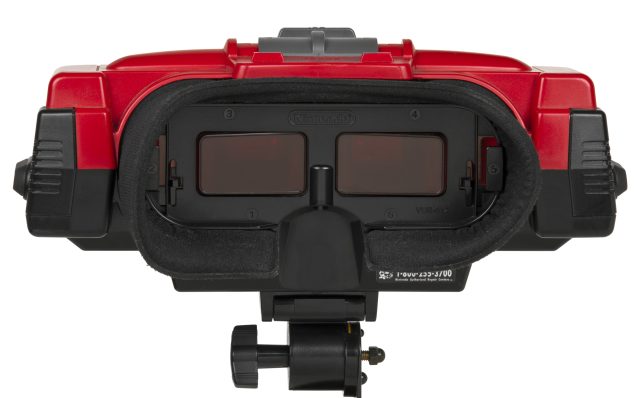
Two decades after the flop of the Virtual Boy and after years of saying that virtual reality isn't a good fit for its company philosophy, Nintendo has joined the swelling ranks of tech companies interested in VR. The news comes from a Nintendo earnings call out of Japan last night, during which Nintendo President Tatsumi Kimishima reportedly said the company is "looking into" VR.
Nintendo didn't provide any other details about any potential VR plans, but the tidbit is especially interesting considering Nintendo's work on the still shadowy NX console, first mentioned last March. Since that announcement, we've been left guessing about a project Nintendo has only said is "the new hardware system with a brand-new concept." With the Wii U seemingly not powerful enough to drive a really convincing, high-res VR headset, it's not ridiculous to think that Nintendo has been "looking into" VR as an integral part of its new NX hardware.
If Nintendo has been working on a VR system this whole time, though, it has done a good job of hiding it. Until today, the company has been consistently bearish on the kind of VR technology that has excited much of the gaming industry. When asked about VR plans back in 2014, Nintendo Senior Director of Corporate Communications Charlie Scibetta told Ars that the company "[tries] to innovate on our own and not necessarily follow what others have done just for the sake of doing that."
Nintendo of America President Reggie Fils-Aime has been Nintendo's most prominent VR skeptic. Back in 2014, he told the AP that "the technology [for VR] isn't quite there yet in our view" and that "when it's there and enables a fun experience, we'll be there, too." Last year, Fils-Aime told Polygon bluntly that based on the virtual reality experiences he had seen, "it's not fun, and it's not social. It's just tech." And legendary Nintendo creator Shigeru Miyamoto told NPR that "we don't feel that virtual reality is a good fit for [the] philosophy" of getting whole families playing together in the living room.
That said, Fils-Aime also admitted to Polygon that the company has "knowledge of the [VR] technical space, and we've been experimenting with this for a long, long time." Miyamoto also told NPR that "we experiment with virtual reality and different technologies," and Scibetta told us in 2014 that Nintendo is "always looking at new technologies [and] at what's happening in the industry." Maybe Nintendo has simply been playing coy this whole time, working on VR tech relatively quietly and waiting to make a big splash with a virtual reality NX announcement later this year?
That seems rather unlikely. If Nintendo had been planning to integrate virtual reality into its new console this whole time, it probably would have at least hinted at that new direction. Such hints would have let Nintendo ride a wave of VR hype that has been roiling gaming and tech for years now and generated some excitement from investors still skittish over Nintendo's sliding performance. It also could have blunted some of the momentum of direct competition like Sony's PlayStation VR.
Instead, Nintendo has repeatedly described NX as "unique" and "new," words that no longer really apply to a crowded field of VR wannabes. That suggests the core of NX has been focused in a different direction, such as the one hinted at by an entirely odd rounded touchscreen controller patent. If Nintendo's legitimate interest in VR is as new as its recent public statements, it's probably too late for the company to transform the NX into a VR-focused system at launch, even if it wanted to (which is far from clear in any case).At this point, it's all deep-dive Kremlinology and tea-leaf reading regarding a company that has been very reluctant to discuss its future hardware plans. For now, though, it's best not to expect an imminent, splashy VR hardware revolution from a company that's merely started "looking into" the space.
reader comments
45